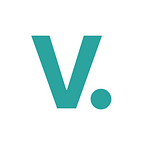Vizzuality, Satelligence, SEI receive US$2 million from European Commission for sustainable supply chain services.
A consortium led by Vizzuality has received a US$2 million grant from the European Commission to develop tools to assist food industry companies manage environmental impacts and risks in their supply chains. The grant leverages the consortium’s respective areas of expertise and wealth of data produced under the EU Copernicus program to bring new services to market.
The sustainable business market has grown rapidly as regulators and consumers pressure businesses to account for the impacts of their operations. This past October, the European Parliament adopted a resolution setting the groundwork for regulating deforestation caused by EU businesses. In April this year, a group of over 300 businesses called on US President Biden to commit to reducing carbon emissions by 50% by 2030.
This consortium aims to build digital tools and customized systems that help companies transform their existing supply chain models to become more sustainable and better prepare for the future. This means anticipating raw materials price volatility risks, avoiding supply chains discontinuity, or integrating the current and future externalities costs associated with these environmental impacts into their risk maps and financial statements.
Supply chain management is especially critical for companies with agricultural supply chains. Globally, the food sector produces over $11 trillion in revenue and supports the livelihoods of millions of small scale growers. Yet the production of food also accounts for an outsize portion of environmental impacts, from climate change to water use, deforestation, and biodiversity loss, and is uniquely exposed to climate variability.
Moreover, sustainable businesses tend to outperform their less sustainable peers. Businesses that think more holistically about their place in the world are better able to adapt to changes in the market environment, and can attract and retain top talent that care about having a positive effect on the world.
“The world is moving to a zero carbon future. That part is inevitable. What is not is whether companies will move quickly enough to be in that future. We want to help them,” says Vizzuality CEO, Craig Mills.
Vizzuality leads the LandGriffon consortium with its experience in developing user-centric scientific data management and mapping applications. “Vizzuality has worked with leading non-profit organizations to build tools to protect biodiversity and address climate change for 10 years. Many of these tools have become the baseline for corporate environmental risk management,” describes Mills.
“At Satelligence we are very excited to bring our expertise in artificial intelligence and satellite-based monitoring of land and forest change to this project. The future is real-time monitoring with reliable, objective and scientific data,” adds Satelligence CEO, Niels Wielaard.
Stockholm Environment Institute has been driving supply chain transparency through the Trase initiative. SEI Senior Research Fellow and Trase Director, Toby Gardner states, “The Trase initiative has helped demonstrate that being more creative in harnessing datasets that are already being created by companies, governments and civil society can drive a revolution in supply chain transparency. We are excited about the potential of this project to help scale-up the uptake and impact of these data.”
Register for updates at https://landgriffon.com.
This project has received funding from the European Union’s Horizon 2020 research and innovation programme under grant agreement No 101004174.
For more information contact Francis Gassert, Strategy & Impact, Vizzuality (francis.gassert@vizzuality.com).
About Vizzuality.
Vizzuality is the agency responsible for some of the world’s most impactful and widely used environmental data applications, including Global Forest Watch, Trase.Earth, and the Half-Earth Project Map. We develop digital products, strategies and services that detect deforestation, calculate carbon emissions, and map biodiversity. Our team of developers, designers, scientists and user researchers work with NGOs and international corporations to create the change that is leading to a more sustainable future.
About Satelligence.
Satelligence provides insights into the global performance of agricultural production and supply chain risks, such as deforestation, land degradation, forest fires and carbon stock loss for growers, traders, manufacturers and financial institutions. Thanks to our satellite powered insights, we can help mitigate deforestation, track progress towards zero deforestation supply chain and achieve sustainability commitments for palm oil, cocoa, coffee, soy, rubber, beef and other agricultural commodities.
About Stockholm Environment Institute.
SEI is an international non-profit research and policy organization that tackles environment and development challenges. We connect science and decision-making to develop solutions for a sustainable future for all. Our work spans climate, water, air and land-use issues, governance, the economy, gender and health.
About Trase.
Trase is a data-driven transparency initiative that is revolutionising our understanding of the trade and financing of commodities driving deforestation worldwide. Its unique supply chain mapping approach brings together disparate, publicly available data to connect consumer markets to deforestation and other impacts on the ground. Trase’s freely-available online tools and actionable intelligence enable companies, financial institutions, governments and civil society organisations to take practical steps to address deforestation.
